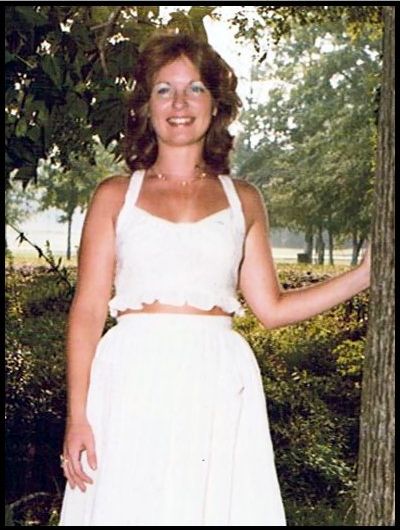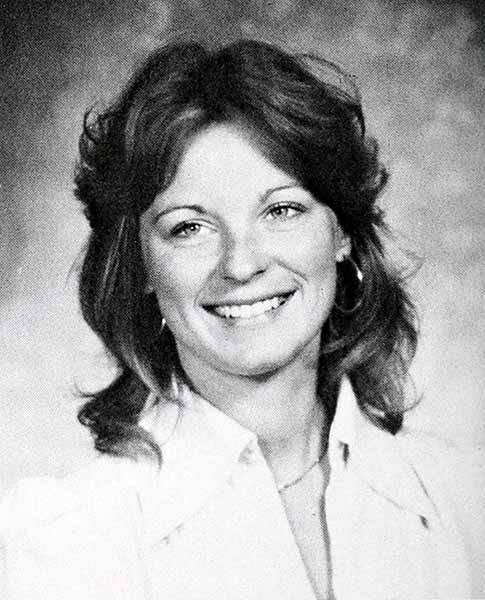
Quenette Shehane
Birth: September 21, 1955
Death: December 20, 1976
Obituary
No obituary found.
Burial: Pea River Presbyterian Church Cemetery, Clio, Barbour County, Alabama, USA
Criminal Details
FindAGrave.com
Rick & Kat – July 7, 2010
View on FindAGrave.com
Quenette Shehane, 21, was killed on Dec. 20, 1976. She had just graduated Birmingham-Southern College. Her car was packed up and she was ready to head home to Barbour County.
She stayed in Birmingham for several days after graduation, working at Parisian department store, and when she left work that night, she went to her boyfriend’s fraternity house for dinner. They needed salad dressing so she hopped in the car with some cash and headed to a nearby convenience store.
When she didn’t return, her boyfriend began frantically calling around and driving around searching for her. When he couldn’t locate her, he called police and her family. Her family drove up to Birmingham from Clio when they learned that she was missing.
WSFA.com
Lindsey Rogers – May 22, 2015
View Article on WSFA.com
 MONTGOMERY, AL (WSFA) – A high-profile Alabama murder case is being featured on national television in an in-depth crime documentary.
MONTGOMERY, AL (WSFA) – A high-profile Alabama murder case is being featured on national television in an in-depth crime documentary.
The broadcast is shedding light on the impact the case has had on thousands of other victims of violent crimes across the state.
When Miriam Shehane heard that the Investigation Discovery channel’s “On the Case with Paula Zahn” wanted to profile her daughter’s murder case, her family embraced the opportunity and flew to New York City to be interviewed.
“I am so thankful that we were chosen so that her story can be told,” Shehane said.
It’s a story of a beautiful young woman robbed of a bright future.
Quenette Shehane, 21, was killed on Dec. 20, 1976. She had just graduated Birmingham-Southern College. Her car was packed up and she was ready to head home to Barbour County.
She stayed in Birmingham for several days after graduation, working at Parisian department store, and when she left work that night, she went to her boyfriend’s fraternity house for dinner to see him one last time before the holidays. They needed salad dressing so she hopped in the car with some cash and headed to a nearby convenience store.
When she didn’t return, her boyfriend began frantically calling around and driving around searching for her. When he couldn’t locate her, he called police and her family. Her family drove up to Birmingham from Clio when they learned that she was missing.
Quenette’s body was found the next day, nude and frozen. She had been abducted from the convenience store, forced into her own car by three men. She was raped in her car as they drove around and then shot several times as she begged for her life. Inside her car, police ended up finding the salad dressing and two cupcakes she purchased for dessert.
“This is the most traumatic thing that I could ever think could ever happen to anybody. We were just a close knit family. We thought we had everything put together and then our world came crashing apart,” Quenette’s mother said. “She had so much to offer and it angers me that she was not able to fulfill that.”
In 1990, Wallace Norell Thomas was executed by electrocution for Quenette’s murder. He was caught robbing another convenience store with the same gun used to kill Quenette. His palm print was also found on her car.
Two other men were also charged in the case. Eddie Bernard Neal was sentenced to life without parole. After several trials, Jerry Lee Jones ultimately received a life sentence for the killing.
Shehane’s family endured seven trials in five years involving the three suspects after a portion of Alabama’s death penalty was struck down by the U.S. Supreme Court and all three of their trials had to be done over again.
Jerry Lee Jones reported that on the night of the murder, Wallace Thomas picked them up and told them they were going to pick up a girl and “have fun” and the trio ended up spotting Quenette coming out of the store. Clerks at the store heard her scream, but said they thought it was college kids playing around and never went to check on things.
Ever since her murder and the daunting experience her family had in courtrooms, Quenette’s loved ones knew they wanted to not only keep her memory alive, but also help others dealing with tragedies and fighting for justice.
They became instrumental in victims’ advocacy, especially Miriam. She helped start V.O.C.A.L. (Victims Of Crime And Leniency) in 1982, helping reform victims’ rights laws and assisting thousands of victims across the state.
“I did not want Quenette to be forgotten. That was my mission,” Shehane said. “I did not want her to be another statistic. I wanted people to know that she was a real person. She loved life. She lived every minute of her life to the fullest.”
V.O.C.A.L.’s headquarters in Montgomery is a refuge where victims and even witnesses can stay free of charge when they have to be in court or at parole hearings.
“Miriam has turned something extremely tragic in her and her family’s lives into something wonderful for victims in the state of Alabama. I don’t know where we’d be without V.O.C.A.L.,” said Montgomery County District Attorney Daryl Bailey, who has worked with Shehane on cases for more than 20 years. “V.O.C.A.L. has done a tremendous amount to make sure that victims, especially homicide victims, are taken care of and that victims are respected in the court system and by those who make our laws.”
V.O.C.A.L. has been a part of nearly two dozen bills over the years, including Alabama crime victims compensation, helping victims of violent crimes with various expenses, and the 1-1 jury strike, making the jury selection process fair between the prosecution and defense. Another law mandates that the parole board notify victims if the person convicted in their case is up for a hearing.
“Victims have some rights that they didn’t have then,” Shehane said. “It’s been very rewarding and it lets me know that what I have dedicated my life to has not been in vain.”
“Because of V.O.C.A.L., we can now have victims come into the courtroom and stay throughout the entire life of the trial. Victims are allowed to come at every stage of the proceedings and participate. They are required to get information about the case, to know their rights. V.O.C.A.L. has been there every step of the way fighting for legislation for victims,” Bailey added. “They provide counseling services to victims. They provide a hand to hold and someone to hug and someone who listens which is so important for the victims of crime.”
“Fatal Errand” will air Sunday at 9 p.m. on Investigation Discovery’s “On the Case with Paula Zahn.”
Miriam, along with her other daughter and the prosecutor who handled the case as well as Quenette’s boyfriend will be featured in the episode.
Miriam hopes the broadcast will let more Alabama crime victims know that they have somewhere they can turn to as they cope.
“I don’t think enough crime victims know that we’re here. All of our services are free,” Shehane said. “I would like to tell other victims that things will move on. You can make out of life what you want to.”
Other News Links
July 14, 1990 – New York Times May 15, 2015 – Birmingham News May 11, 1979 – Justia.com
